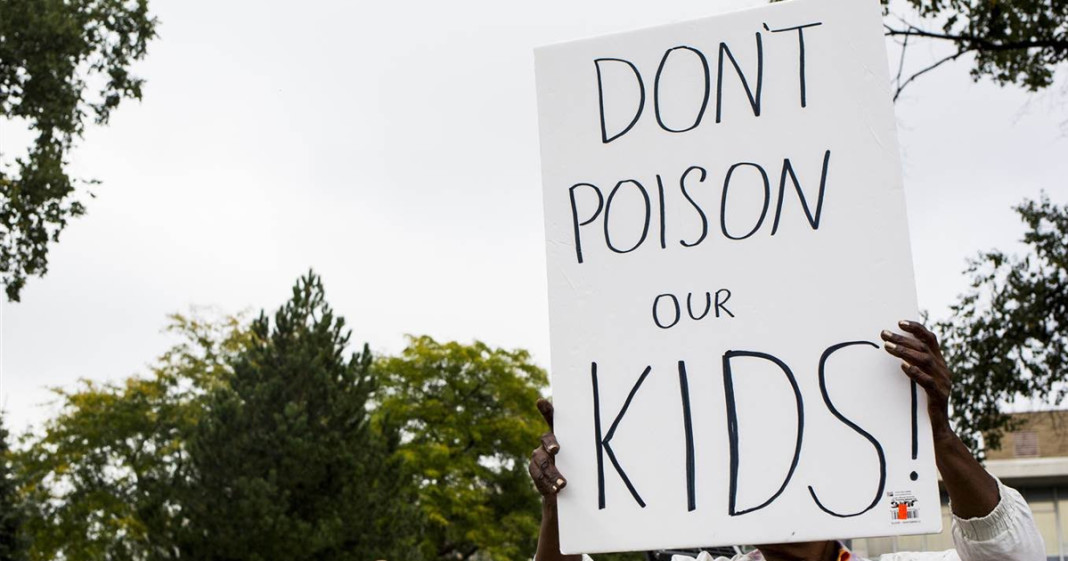Would you pay for a product both you and the manufacturer or supplier knew to be toxic and dangerous to your health? Particularly when that choice of product was forced on you, and you were given absolutely no alternatives? That’s what the City of Flint, Michigan is expecting of its residents – and they are threatening to throw them out of their homes if they don’t pay up now.
In April 2014, as part of a “cost-cutting” plan, the City of Flint, Michigan switched its water supply from Lake Huron to the Flint River – a decision that has been an unmitigated disaster (and involved alleged criminal activity). In less than a year, it became patently obvious that levels of lead in the city’s water were seven times higher than acceptable limits established by the EPA. This was due to the erosion of pipes used to funnel the water into the city, pipes which the state had failed to treat to prevent erosion. In March 2015, the Flint City Council voted to reconnect the municipal water supply with that of Detroit. In defiance of the will of its residents, the city’s Emergency Manager – an un-elected henchman appointed by Governor Rick Snyder – overruled that vote.
Today, Flint’s water supply is still toxic. One can hardly blame residents for refusing to pay for poisoned water. Incidentally, those rates are among the highest in the country – so it should come as little surprise that residents in this impoverished, largely African-American community have simply been unable to keep up.
Nonetheless, the city, strapped for cash, is lowering the boom, resuming shut-offs (in violation of stated U.N. policy), having Child Protective Services investigate parents whose homes do not have running water – and now, threatening to take peoples’ homes if they continue to refuse to pay for the poison swill coming through their taps.
This week, the City of Flint sent out notices to 8,000 residents, threatening to put tax liens on their homes if they do not pay all outstanding notices by May 19th. Once a tax lien is in place, it starts a process that can result in foreclosure. Al Mooney, Flint’s city treasurer, justifies this strong-arm tactic by whining that the municipal government is cash-strapped and needs the revenue.
He told the local NBC affiliate,
“We have to have revenue coming in, so we can’t give people revenue, I mean excuse me, give people water at the tap and not get revenue coming in to pay those bills.”
Indeed? In December, the U.S. Senate passed a $170 million aid package for Flint. $100 million of that was in the form of grants to pay for improvements to the city’s water infrastructure. According to a story from local radio station, the Michigan state legislature finally voted last week to pass those federal funds on to the City of Flint for updating corroded pipes and outdated water mains, replacing water meters, and an engineering study.
But the prospect of that revenue isn’t stopping the city from extorting a few million more from residents who themselves are strapped and haven’t been getting what they are expected to pay for in any event.
There’s another, even uglier aspect to this story.
While low income Flint residents are being extorted for hundreds, even thousands of dollars, the multi-billion dollar Nestlé Company – whose chairman, Peter Brabeck, thinks that water should be controlled by private corporations as a market commodity and those who cannot afford to pay for it should simply die – is pumping 150 gallons a minute from Michigan’s groundwater sources.
Here’s the kicker: Nestlé is getting all this water, for which it charges exorbitant prices in bottled form, for a mere $200 a year. And, as the people of Flint Michigan continue to go without, Nestlé is planning to triple its extraction.




